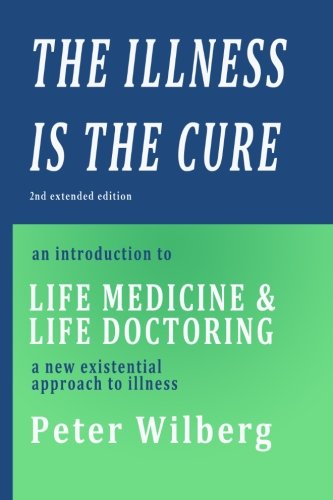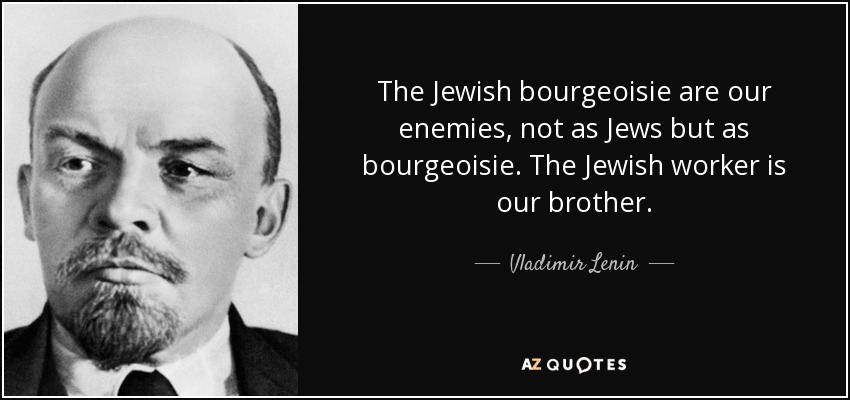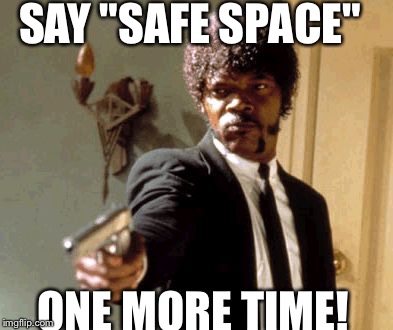......................
Modern Zionism is the ideology, a ramified system of organisations and the practical
politics of the wealthy Jewish bourgeoisie which has closely allied itself with monopoly
circles in the USA and other imperialist countries. The main content of Zionism is
bellicose chauvinism and anti-communism.
The Israeli ruling circles are junior partners in the international Zionist concern: this is
indeed one of the most important conditions of their existence as ruling circles. The
"Zionist Concern," represented by the World Zionist Organisation, the World Jewish
Congress, which is really a branch of the former, and numerous of her offshoots, whose
role is sometimes more important than that played by organisations with a signboard at
their entrance, is at the same time one of the world's largest associations of finance
capital, a self-styled global "ministry" for the affairs of "world Jewry," an international
intelligence centre, and a well-run misinformation and propaganda service. The cardinal
aim of the concern's "departments" whose operations are guided from a single centre, is
amassment of profits and wealth ensuring them power and a parasitical well-being within
the imperialist system. Needless to say, defence and consolidation of imperialism's
positions is part and parcel of this main objective of international Zionism.
Let us recall what Marx wrote: "Judaism has persisted alongside of Christianity not only
as a religious criticism of Christianity, not only as the embodiment of doubt in the
religious parentage of Christianity, but equally because Judaism has maintained itself,
and even received its supreme development, in Christian society."
But of course something can only be said to persist provided it has existed up to the
moment when the question of its continued existence or disappearance arises.
Consequently, the concept "Judaism" (emphatically not to be qualified simply as
"bourgeois huckstering") steps across the temporal border of capitalist society and
recedes into the ages.
The term "huckstering" is so adequately defined in the German language that if necessary
it can be used to characterise all the activities conducted by Phoenician, Armenian,
Jewish and other traders of the pre-capitalist epoch. Marx, however, does not do this.
Indeed, one of the reasons why Zionists hate Marx is the fact that apart from having a
collective implication, the concept "Judaism" he introduces contains a definite,
accusatory characterisation of the activity (as the most typical huckstering) of the rulers
of Jewish communities, the direct bearers of Judaism.
"All over Europe," Lenin wrote, "the decline of medievalism and the development of
political liberty went hand in hand with the political emancipation of the Jews, their
abandonment of Yiddish for the language of the people among whom they lived, and, in
general, their undeniable progressive assimilation with the surrounding population."
Examining this period Leonard Stein states in his Zionism: "The emancipated Jews of the
West could no longer regard themselves as exiles living in a world apart. They had
become firmly rooted in the countries of their birth, to which they were attached, not only
by political allegiance but also by the closest ties of interest and affection. . . . They had
ceased to be simply Jews, and as Englishmen, Frenchmen, Germans, or whatever it might
be, they went their several ways. They could no longer rest content with the old-world
doctrines of the Exile and the Redemption, which envisaged the Jews as the scattered
fragments of a homeless people."
The rapid process of emancipation mentioned by Lenin cut through all obstacles barring
its way and hit hard at Judaism, the mainstay of Jewish bankers, factory-owners and
traders.
In the 1870s the Syrian and Palestine Colonisation Society was founded in England "to
promote the colonisation of Syria and Palestine and the neighbouring countries by
persons of good character, whether Christians or Jews." The time was ripe for the
emergence of Zionism: the time had come when, as the early 20th century Zionist leader
Max Nordau put it, if Zionism had not existed "Great Britain would have had to invent
it."
As we have seen the World Zionist Organisation was founded in 1897. In 1902 the
Jewish Colonial Trust was created, an international Zionist joint-stock company, which
according to Nahum Sokolow "is the financial instrument of the Zionist movement, and
its main object is the industrial and commercial development of Palestine and the
neighbouring countries."
Zionists have always attached the greatest importance to implanting the idea that "antiSemitism is eternal" in the minds of the Jewish working people. The senile Yahweh and
his remiss messenger, evidently disinclined to make his appearance, could not in modern
times fully live up to hopes placed in them (as we have seen, even Zionist leaders
themselves admitted as much). This being the case they turned to anti-Semitism, the
persecution of the Jews, making it their true god, their real hope for success and
Zionism's sole stake in life.
The caste system in Israel is a Zionist instrument for dividing the Israeli working people
by which the ruling class ensures itself freedom of manoeuvre and effective control and
the opportunity to incite and fan racialism spearheaded against the Arabs, a means of
toning down class conflicts in the Jewish community and securing at least a temporary
alliance of all those who in one way or another seek to gain from the persecution of the
Arab minority.
Arab minority. . . . Let us not mention the time when there were not more than 5,000
Jews in the whole of Palestine, but take the period of the formation of the State of Israel.
In keeping with the UN decision of November 1947, the State of Israel was set up on a
territory of 14,000 square kilometres with a population (plus or minus 5,000) of
1,100,000 of whom 600,000 were Jews and 500,000 Arabs.
As a result of the 1948 war Israel annexed 6,000 square kilometres of Arab Palestine with
a population of approximately 400,000.
At the beginning of 1949, according to Israeli data, not more than 160,000 Arabs
remained on the territory of more than 20,000 square kilometres controlled by Israel.
Under what circumstances and whither did more than 700,000 Arabs disappear?
What became of their immovables? Who uses them? Who owns their land now? How
many of them were shot as a lesson to others refusing to leave their homes? How many
died from disease, hunger, or through not having a roof over their heads?
Let us cite the few facts available from Israeli sources:
The majority of the Arabs were forcibly expelled in the war of 1948 and their villages
were destroyed.
On 5.11.1948 the inhabitants of the village of Iqrit in Western Galilee were expelled by
force.
On 15.11.1948 the village of Kfar Bira'am was evacuated by force.
On 4.2.1949 the inhabitants of the village of Kfar A'nan were evacuated, most of them
expelled across the border. The village was demolished by the army.
On 28.2.1949, 700 Arab refugees were evacuated from the village of Kfar-Yasif (who
settled there after being driven out of their own villages). All were expelled across the
border.
On 24.1.1950 the army evacuated by force the inhabitants of Ghabsiya village who were
expelled across the border.
On 17.8.1950 the inhabitants of the Arab town of Majdal Ashkelon (about 2,000) were
expelled from the country.
Early in February 1951 inhabitants of 13 small Arab villages in Wadi-A'ara were
expelled outside the country.
On 17.11.1951 the village of AI- Bowieshat was demolished by the army and its
inhabitants expelled across the border.
In September 1953 the inhabitants of the village of Um-El-Faraj were expelled and the
village demolished.
On 29.10.1956 men, women and children in the village of Kfar Kassim were massacred.
The world knows only a fraction of the tragedy of the Arab refugees (the above facts are
only a cross-section of that fraction). But with time all details will come to light.
The Israeli version of apartheid (Ashkenazim-Sephardim-"goy"-Arab) plus an elaborate
system of brutal racial discrimination against the Arabs serve the same purpose. They are
a component part of the policy pursued by the Zionist elite of the World Zionist
Organisation and Israel in the formation of a so-called centre of influence—a "Jewish
centre" (and not the State of Israel inhabited by Israelis).
The leaders of international Zionism can do neither without the ruling class now in power
in Israel, nor without a privileged caste of emigrants from countries where the wealthiest
and politically influential Jews are living (Europe and America). Ostensibly this caste
personifies Israel as a whole, for, according to Zionist psychologists, it is only in the
name of people of their own kind that a specific section of Jews in Europe and America
will continue their donations (i.e., filling the Zionist coffers) and demonstrate their
backing for the idea of "dual citizenship."
This is another important element of the Israeli version of apartheid.
Yuri Ivanov - CAUTION: ZIONISM!
Essays on the Ideology, Organisation
and Practice of Zionism, 1970
.......................
"That is precisely what the Jewish problem amounts to: assimilation or isolation?—and the idea of Jewish 'nationality' is definitely reactionary not only when expounded by its consistent advocates (the Zionists), but likewise on the lips of those who try to combine it with the ideas of Social-Democracy (the Bundists). . . . Karl Kautsky, in particular reference to the Russian Jews, expresses himself ever more vigorously. Hostility towards non-native sections of the population can only be eliminated when the non-native sections of the population cease to be alien and blend with the general mass of the population. That is the only possible solution of the Jewish problem, and we should support everything that makes for the ending of Jewish isolation.' Yet the Bund is resisting this only possible
solution for it is helping, not to end but to increase and legitimise Jewish isolation. . . ."
"The best Jews, those who are celebrated in world history, and have given the world foremost leaders of democracy and socialism, have never clamoured against assimilation. It is only those who contemplate the 'rear aspect' of Jewry with reverential awe that clamour against assimilation."
- V. I. Lenin
...............
Political Zionism emerged at the close of the nineteenth century as the ideology, and then the practice, of the reactionary Jewish bourgeoisie, fearful of the awakening of the heroic self-consciousness amongst the Jewish proletariat.
The capitalists of England, the USA, France, Germany, and other countries, amongst them millionaires and multi-millionaires of Jewish origin, who had their eyes on the wealth of the Near East, helped the creation of the Zionist idea. From the very outset it was linked with the project of the establishment in Palestine of a Jewish state as a Jewish fortress, a barrier against Asia
Zionism and anti-semitism are two sides of the same coin - racism. Zionists greeted the anti-semitic policies of Tsarism in its time and also the monstrous policies of genocide at the time of Hitler.
Hence it came about that Zionists "co-operated with Hitlerites and helped them to destroy millions of Jewish lives, attempting to save only the capitalists. The Zionists always regarded anti-semitism, and still do so, as an important means of forcing all Jews to leave their countries and escape to the 'Promised Land' in Israel".
The Judenrate [Jewish councils] sincerely and exactly carried out all the orders of the fascists, even orders about the physical mass elimination of the Jewish population... In the shape of the Judenrate the activities of the Zionists were legalised and their leaders became loyal executors of fascist policies.
Wherever the inhabitants of the ghettos who were condemned to death succeeded in organising uprisings against the fascists, especially in Warsaw in 1943, the Zionists helped the Germans frustrate the uprisings, or crush them where they occurred.
Zionist ideologues have never concealed their positive attitude towards anti-semitism, in which the powerful Jewish bourgeoisie and Judaic clericalism saw a convenient way of maintaining their influence over the Jewish communities.
Israel has a special relationship of the closest kind with South Africa. Israel and South Africa are linked to one another by economic, political, military, and ideological ties... Israel and South Africa are linked by a common racist ideology and practice, and by reactionary domestic and foreign policies... The union of the racists of Israel and South Africa is a massive threat to the African peoples and to the whole of humanity.
In many bourgeois countries, Zionist organisations have implanted their 'cadres' and 'sympathisers' into the central press agencies, the editorial offices of radio and television, into the cinema, the sciences, arts, and literature. Using these powerful levers, the Zionists influence public opinion, overtly or covertly preaching their ideas, skirting round in silence or distorting anything which contradicts their ideology in the slightest.
Read:
V. Bolshakov (1972): Zionism in the Service of Anti-Communism.
M. Davydov et al. (1973): We Pass Judgement on Zionism.
I. Mints et al. (19731: Zionism: Theory and Practice.
V. Skurlatov (1975): Zionism and Apartheid.
R. Brodsky/ Y. Shulmeister (1976): Zionism - A Tool of Reaction.
V. Kiselev et al. (1977): International Zionism: History and Politics.
................
...By its nature, Zionism concentrates ultra-nationalism, chauvinism and racial intolerance, excuse for territorial occupation and annexation, military opportunism, cult of political promiscuousness and irresponsibility, demagogy and ideological diversion, dirty tactics and perfidy... Absurd are attempts of Zionist ideologists to present those who criticize them, or condemn the aggressive politics of Israel's ruling circles, as antisemitic... We call on all Soviet citizens: workers, peasants, representatives of intelligentsia: take active part in exposing Zionism, strongly rebuke its endeavors; social scientists: activate scientific research to criticize the reactionary core of that ideology and aggressive character of its political practice; writers, artists, journalists: to more fully expose the anti-populace and anti-humane diversionary character of the propaganda and politics of Zionism...
- Pravda 1.4.83
.................
“Palestine belongs to the Arabs in the same sense that England belongs to the English or France to the French. It is wrong and inhuman to impose the Jews on the Arabs... Surely it would be a crime against humanity to reduce the proud Arabs so that Palestine can be restored to the Jews partly or wholly as their national home”
- Mahatma Gandhi
...................
“People who call themselves supporters of Israel are actually supporters of its moral degeneration and ultimate destruction.....In the Occupied Territories, what Israel is doing is much worse than apartheid. To call it apartheid is a gift to Israel, at least if by "apartheid" you mean South African-style apartheid. What’s happening in the Occupied Territories is much worse.”
- Noam Chomsky
.....................
“If every single Jew born anywhere in the world has the right to become an Israeli citizen, then all the Palestinians who were chucked out of Palestine by the Zionist Government should have the same right, very simple.”
- Tariq Ali
.......................
“I concede with sorrow that the baseless fanaticism of our people is in part to be blamed for the awakening of Arab distrust. I can raise no sympathy at all for the misdirected piety which transforms a piece of a Herodian wall into a national relic, thereby offending the feelings of the natives.”
- Sigmund Freud
..........................
"The trouble is that Zionism has often thought and said that the evil of antisemitism was necessary for the good of the Jewish people. In the words of a well-known Zionist in a letter to me discussing the original Zionist argumentation: 'The antisemites want to get rid of the Jews, the Jewish State wants to receive them, a perfect match.'"
- Hannah Arendt
............................
Please comment at:
https://www.tapatalk.com/groups/smpbiforum/socialist-quotes-for-sunday-reflection-pt-46-holoc-t101.html






